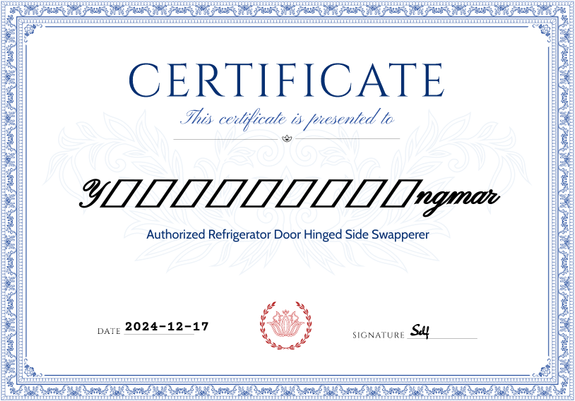#Windows #ProtectedEventLogging is not just for businesses to use. It should also be used on personal devices. It does need to generate a #TrustedCertificate that goes in the #CertificateStore. This might need a #windows edition higher than #Home which cost more to get a #Pro edition at the very least. @computers8networks tr.ee/wim7nV
Update: You can #create #SelfSigned #certificates on #WindowsHome edition using #PowerShell with #Admin #Privileges.
I just pushed a super-simple Makefile I've been using in one form or another to create a self-signed certificate for environments where you can't use a public CA, like a private network that's not accessible from the Internet:
https://codeberg.org/blindcoder/ShareTheBasics/src/branch/main/self-signed-certificate
In case there were any doubts about my qualifications, I have a certificate!
I do have doubts about whoever made that certificate though. Must be predating Unicode.
I probably can demand a raise now. A few extra groats of buckwheat per week.
#SelfSigned #Certificate #Certification #Fridge #Refrigerator #Door #Hinge #Ūnicöde
@lucasmz yes and no..
Yes in that one can just revoke said keys and deploy one's own!
No if you can't revoke the preset #CensorBoot keys in your #UEFI.
No in that these keys are default and that any revocation is 100% reversibe AFAICT.
No in that this would brick #Windows10, #Windows11 and even some #Linux install media.
Personally I'd wish for #heads and #PGP #SelfSigned code to be the norm providing the user/owner with full control over what is executeable!
https://security.stackexchange.com/questions/267171/how-to-use-a-self-signed-certificate-to-intercept-traffic-in-mitm-attack
#maninthemiddle #selfsigned #sniffing
how to use a self signed certificate to intercept traffic in MITM attack
We have a project at university about MITM attacks and our focus is to show how one can get into the communication between two endpoints, given different circumstances and security measures (that we
#Cisco #IOS #TLS #SelfSigned #Expired #YouAreShitOutOfLuck 😪
Try this
nmap --script=ssl-cert.nse 10.10.10.0/24 | grep -i Issuer | grep -i 'IOS-Self-Signed-Certificate'
If the above returns any results (adjust subnets accordingly) then you might want to read this:
https://www.cisco.com/c/en/us/support/docs/field-notices/704/fn70489.html
Field Notice: FN - 70489 - PKI Self-Signed Certificate Expiration in Cisco IOS and Cisco IOS XE Software - Software Upgrade Recommended
Self-signed X.509 PKI certificates (SSC) that were generated on devices that run affected Cisco IOS or Cisco IOS XE software releases expire on 2020-01-01 00:00:00 UTC. New self-signed certificates cannot be created on affected devices after 2020-01-01 00:00:00 UTC. Any service that relies on these self-signed certificates to establish or terminate a secure connection might not work after the certificate expires.







